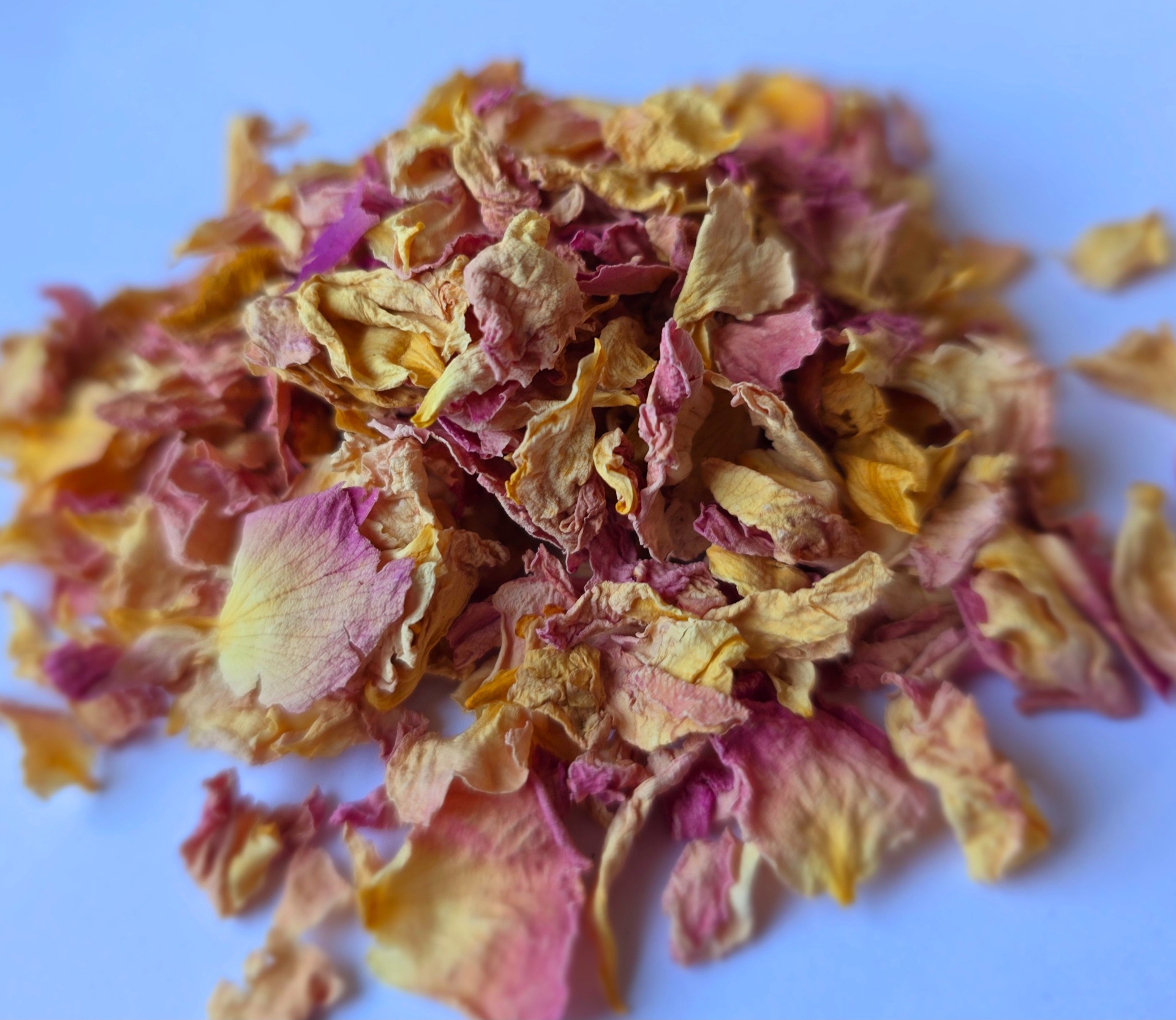Pink Rose Petals

Benefits of Rose Petals
Rose petal tea is a caffeine-free herbal infusion made from dried rose petals. It has been used for centuries for both its delicate flavour and its array of health benefits. Here are the key medicinal and wellness benefits, supported by recent research and expert sources:
1. Rich in Antioxidants
-
Rose petal tea is high in antioxidants such as polyphenols, flavonoids, and vitamin C, which help protect the body from oxidative stress and cell damage. These antioxidants may lower the risk of chronic diseases like heart disease, diabetes, obesity, and cognitive decline.
2. Anti-Inflammatory Effects
-
The tea contains natural anti-inflammatory compounds that can help reduce pain and swelling from conditions like arthritis or injury. Some studies suggest its anti-inflammatory action is comparable to common pain relievers.
3. Supports Skin Health and Slows Ageing
-
The high vitamin C and E content in rose tea supports collagen production, fights acne, reduces pigmentation, and helps slow the ageing process, leading to healthier, glowing skin and potentially reducing hair loss.
4. Immune System Support
-
While the vitamin C content in brewed tea is modest, rose tea's antioxidants and antimicrobial properties help strengthen the immune system and may ease cold or flu symptoms such as coughing and congestion.
5. Improves Digestion
-
Rose petal tea has mild laxative and antispasmodic effects, helping to relieve bloating, constipation, and stomach cramps. It can also soothe the digestive tract and support regularity.
6. Menstrual Pain Relief
-
The anti-inflammatory and muscle-relaxing properties of rose tea can help reduce menstrual cramps, bloating, and pain. Studies have shown significant improvement in period-related symptoms among women who drink rose tea.
7. Mood Enhancement and Stress Relief
-
The aroma and compounds in rose tea have calming effects, reducing stress, anxiety, and promoting relaxation. Inhaling the tea's scent before drinking can enhance these effects, and some research suggests it may help improve sleep quality.
8. Heart Health
-
The polyphenols in rose tea may help lower cholesterol, improve blood circulation, and support overall cardiovascular health.
9. Weight Management
-
Rose tea is calorie-free, hydrating, and contains polyphenols that may inhibit fat cell production, making it a healthy beverage choice for weight management.
10. Antimicrobial Properties
-
Rose tea has natural antimicrobial effects, which may help protect against bacterial and fungal infections, support oral health, and reduce the risk of gum disease.
Note:
Rose petal tea is generally safe for most people when consumed in moderation. However, those with allergies to roses or related plants should avoid it. For specific health concerns or if you are pregnant or nursing, consult with a healthcare provider before use.
- https://www.healthline.com/nutrition/rose-tea
- https://www.webmd.com/diet/rose-tea-good-for-you
- https://artfultea.com/blogs/wellness/flower-power-rose-tea-benefits
- https://the-qi.com/blogs/journal/top-13-benefits-of-rose-tea
- https://www.medicinenet.com/what_are_the_health_benefits_of_rose_tea/article.htm
- https://jaivikuttarakhand.com/blogs/rose-tea/health-benefits-of-rose-petals-tea-a-beautiful-brew-for-wellness-beauty-budget-living
- https://www.artoftea.com/blogs/health-lifestyle/5-ways-to-use-your-rose-tea
- https://senchateabar.com/blogs/blog/rose-bud-tea